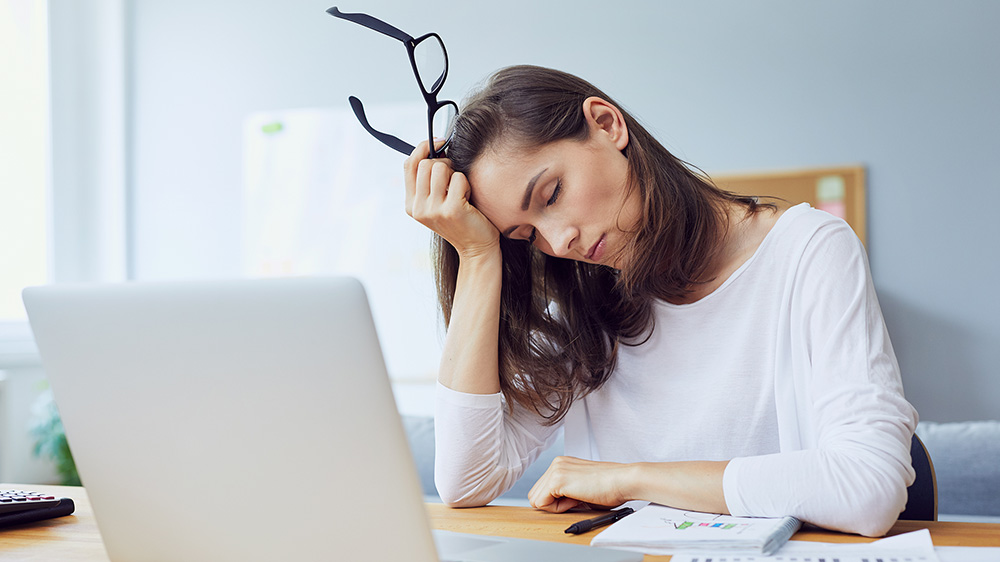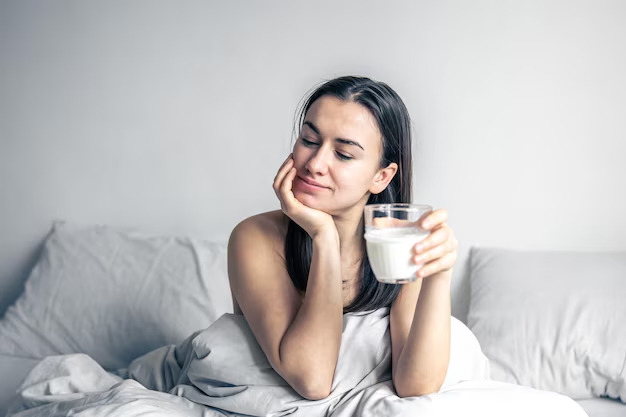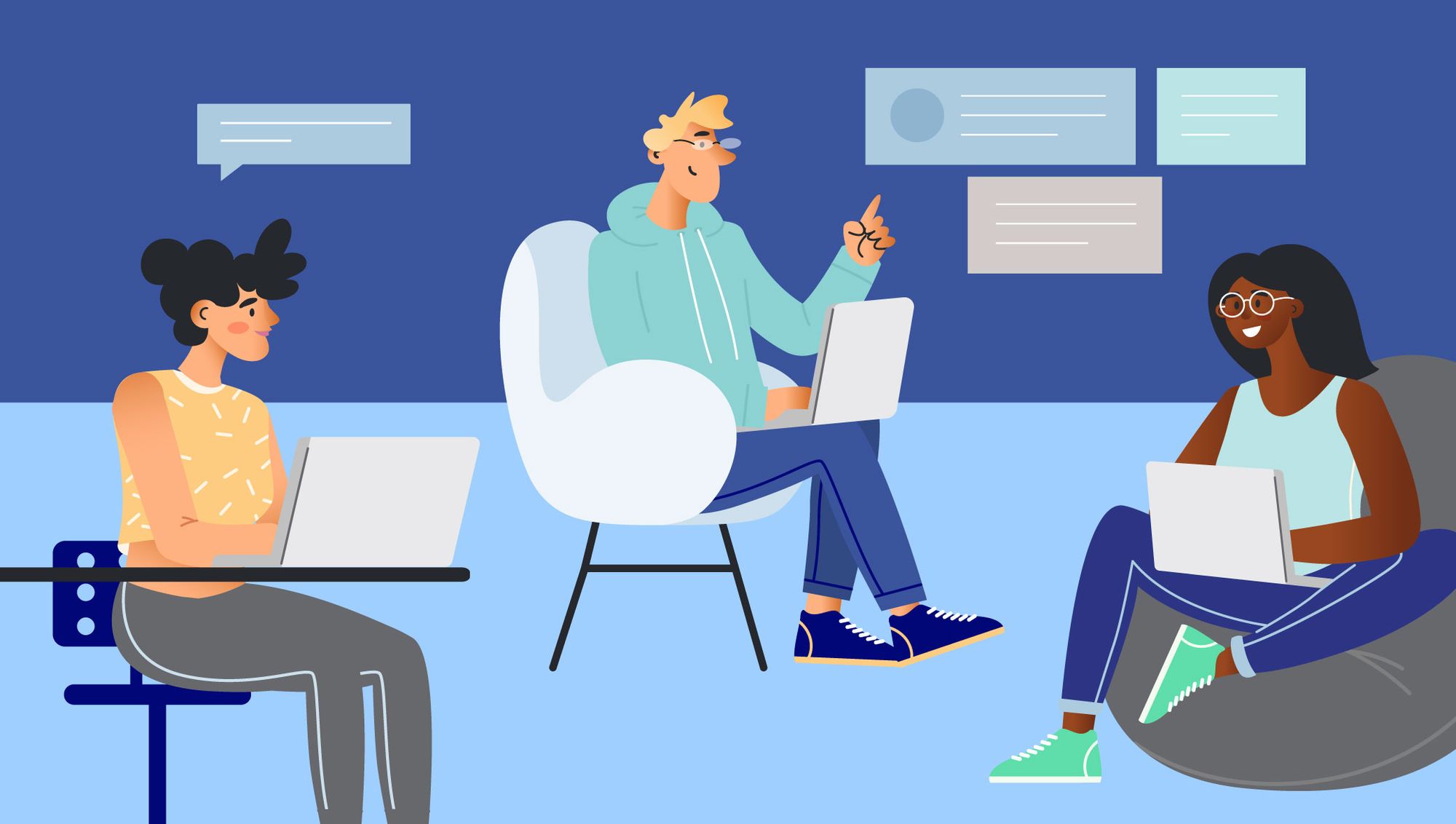
Sleep supplements, sleepy mocktails, and sleeping beauty hacks have become all the rage over the past year. Many people seem to care more about sleep now than ever before — 62 percent do, to be exact, according to a recent Sleepopolis survey.
That said, a new poll suggests that this heightened care for and interest in sleep isn’t really translating into more of it.
A new poll conducted by Gallup found that 57 percent of Americans say they would feel better if they got more sleep — the highest percentage in Gallup’s 23 years of polling on the topic. And, the Gallup poll found that one in five Americans gets less than five hours of sleep per night (which is much less than the recommended seven to nine hours per night). Gallup said that in 1942, only 3 percent of Americans said the same. (1)
The Gallup poll also found that women are less likely than men to get enough sleep, with only 36 percent saying they get enough sleep compared to 48 percent of men. And, younger women (ages 18 to 49) were much less likely to get adequate sleep than other age and gender groups.
Dr, Shelby Harris, licensed clinical psychologist specializing in behavioral sleep medicine and Sleep Health Director at Sleepopolis, told us why this trend in women’s sleep is so prevalent. “Sleep issues are common among women, and age-related factors can contribute to specific sleep problems.” (2)
Why are these sleep issues more common? “Hormonal changes during perimenopause and menopause can lead to hot flashes, night sweats, and mood swings, which can cause sleep disruptions and worsen sleep quality,” explained Dr. Harris.
Dr. Harris added that some lifestyle factors can play a role. “For women 35 and older, stress associated with work, family, children, and personal life can also impact sleep quality, making it harder to fall asleep or stay asleep. Pregnant women may also experience discomfort, frequent urination, and hormonal changes during pregnancy can negatively affect their sleep.”
Gallup explained this increase in sleep problems as a potential result of rising stress levels. Almost half (49 percent) of Americans say they experience frequent stress in their daily lives, again the highest rate in Gallup’s poll history. (1)
The gender and age group breakdowns of these findings were somewhat different than the sleep questions, with younger Americans, both men and women, reporting the highest rates of frequent stress. A staggering 69 percent of young women reported frequent daily stress — and according to the Gallup’s poll results from previous years, this group has experienced the most rapid increase in this percentage as it has raised 23 points since 2007. (1)
The Problem of Sleep Deprivation in America
According to Dr. Raj Dasgupta, quadruple-board certified physician in Internal Medicine, Pulmonology, Critical Care and Sleep Medicine and Chief Medical Advisor at Sleepopolis, a lack of sleep can lead to complications for our physical and mental health. “Sleep deprivation affects every organ in the body. It can affect our ability to think clearly and remember things, leading to difficulties with concentration and memory,” said Dr. Raj, “Being sleep-deprived can also have a negative effect on our mood, making us more irritable and prone to mood swings.”
“Insufficient deep sleep has been linked to a number of chronic health conditions, including obesity, diabetes, heart disease, and stroke. It can also weaken the immune system, making us more susceptible to illness,” added Dr. Harris.
Dr. Raj told Sleepopolis that adults typically need seven to nine hours of sleep each night, and sleep deprivation can occur in both the short and long term. “Sleep deprivation is when you are consistently missing out on sleep quality or quantity. You can be sleep deprived after 24 hours of going without sleep, or after a few weeks with not enough quality sleep,” said Dr. Raj.
Stress management strategies, like exercise and meditation, can be beneficial for sleep, and we can’t emphasize enough the importance of practicing good sleep hygiene for better quality Zzz’s. While many of us may care more about sleep this year, the above Gallup poll highlights the increasingly prevalent issue of sleep deprivation in America, which impacts so many areas of our lives.

Sources
- Fioroni, Sarah and Foy, Dan.”Americans Sleeping Less, More Stressed.” Gallup. April 15, 2024. https://news.gallup.com/poll/642704/americans-sleeping-less-stressed.aspx
- Harris, Shelby. Personal Interview. April 15, 2024.
- Dasgupta, Raj. Personal Interview. April 15, 2024.




























